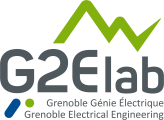Jury :
Corinne ALONSO, Examinatrice, Professeur des Universités, Université Toulouse 3 - Paul Sabatier
Marc PETIT, Rapporteur, Professeur des Universités, CentraleSupélec, Université Paris Saclay
Salvy BOURGUET, Rapporteur, Maître de Conférences HDR, Polytech Nantes, Nantes Université
Bertrand RAISON, Directeur de thèse, Professeur des Universités, Université Grenoble Alpes
Long BUN, Co-directeur de thèse, Enseignant-Chercheur, Institut de Technologie du Cambodge
Marie-Cécile ALVAREZ-HERAULT, Co-directrice de thèse, Maître de Conférences HDR, Université Grenoble Alpes
- Invite:
Vannak VAI, Co-directeur de thèse, Enseignant-Chercheur, Institut de Technologie du Cambodge
Abstract :
Recently, DC-powered devices such as loads (USB plugs, chargers, LED lighting) and distributed energy resources (solar photovoltaic and battery energy storage) have been developed. To cope with these technological trends, an AC/DC microgrid could be an option for rural electrification in developing countries, especially in remote or rural areas. In Cambodia, the electrification rate is only about 82% of the population in 2021 in rural areas. The objective of this thesis is to challenge the traditional AC distribution network by proposing a new hybrid AC/DC microgrid in the context of electrification in developing countries. For this purpose, an algorithm for finding the optimal low-voltage AC/DC network topology has been developed.
Secondly, a general methodology for the sizing and sitting of PVs and batteries in the AC/DC hybrid microgrid is implemented. Then, the "grid-connected" and "off-grid" modes of the system are compared according to several technical, economic, and environmental indicators.
Finally, the comparison of the AC/DC microgrid with fully AC microgrids has been performed on two real study cases (a rural area and an island area) and according to the two possible modes (grid-connected and off-grid). Moreover, the uncertainty of the loads is also considered to observe the sensitivity and robustness of the proposed algorithm. The results show that, although the overall cost of the hybrid AC/DC microgrid is slightly higher than that of the non-cluster tree AC microgrid, it allows for gradual electrification thus avoiding large initial investments.
Keys Words : AC/DC, microgrid, optimization, renewable energy, planning
Soutenance de thèse de Kimsrornn KHON
intitulée "Planning of rural LV AC/DC microgrids with PV and storage"
Mardi 13 décembre 2022 à 9h
Amphi Bergès
G2Elab - site GreEn-ER
21 avenue des Martyrs
38000 Grenoble
Accès Tram B, arrêt Marie-Louise PARIS - CEA


